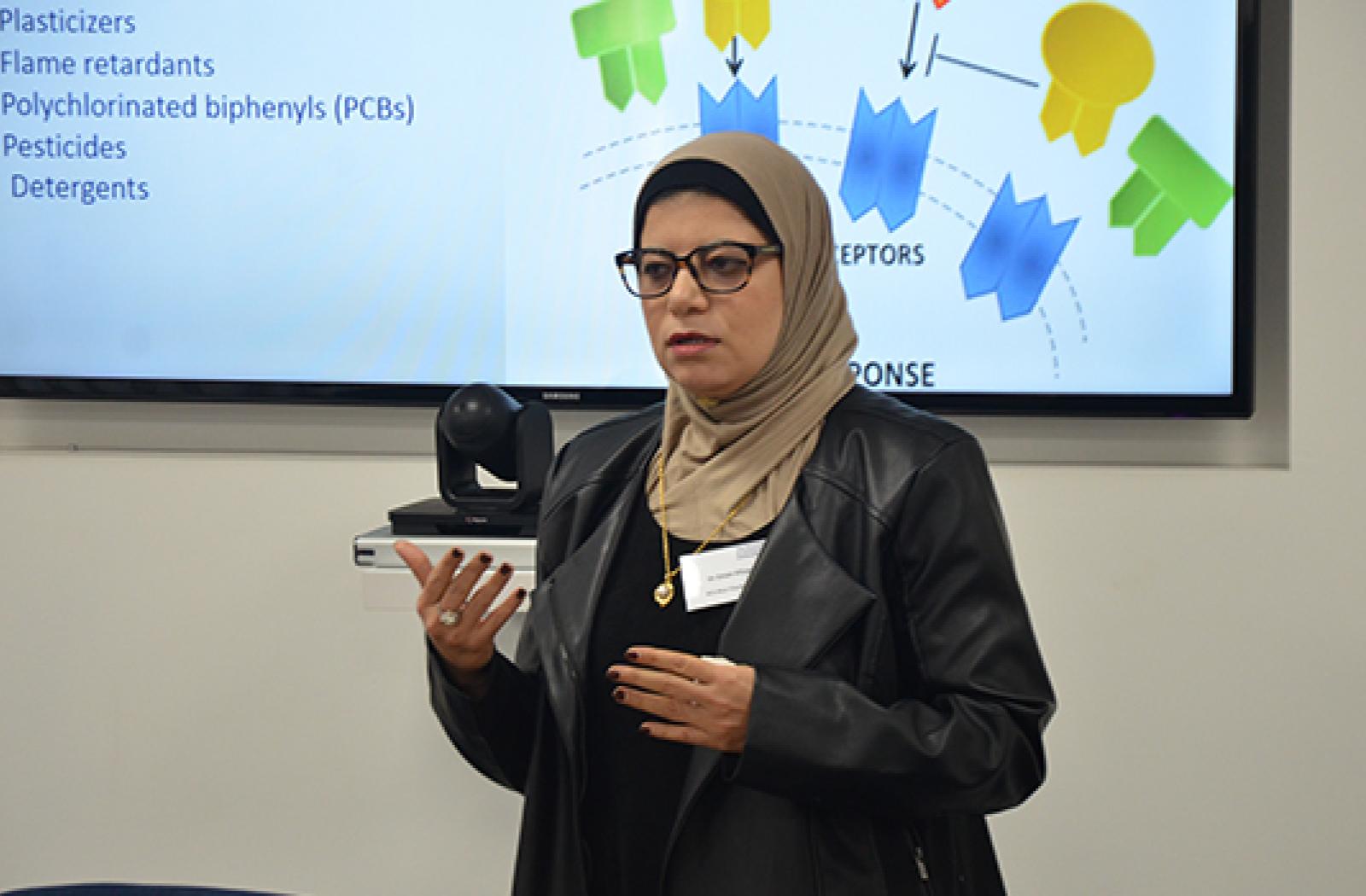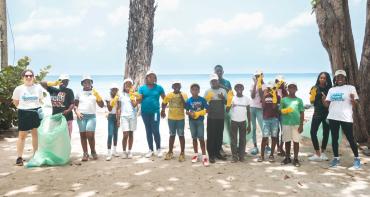Blue Charter fellows have met in London to show how their research helps develop environment-friendly alternatives to disposable plastic, which will chart a better course for our planet

Blue Charter fellows have met in London to show how their research helps develop environment-friendly alternatives to disposable plastic, which will chart a better course for our planet.
They were attending a seminar hosted by the Association of Commonwealth Universities (ACU) in partnership with the Commonwealth Secretariat and the Government of the United Kingdom.
The fellows are awardees of the Blue Charter Fellowships programme, which was created to support emerging Commonwealth scholars to explore solutions on marine pollution such as innovations to clean up the seas, sustainable alternatives to plastic and prevention of waste from entering the oceans.
The fellowship takes its name from the Commonwealth Blue Charter, a collective commitment of the 53 member countries to tackle the world’s shared ocean challenges, agreed by leaders at the Commonwealth Heads of Government Meeting in April 2018.
During discussions, fellows recognised a communication gap between the policy-makers and scientists on marine ecosystems. They said the findings of their research will bridge this gap and inform policy-making in Commonwealth countries on tackling plastic pollution.
Rajkumar landscape
Refilwe Mofokeng, a fellow from South Africa, who now pursues research at the University of Birmingham, described the fellowship as an ‘invaluable opportunity’. She said: “I can now conduct research on microplastic using modern equipment in a world-class lab which was not possible in my home country.”
Fellows from Africa, the Americas and the Asia Pacific regions presented research to officials, scientists and academics. Their solutions focussed on social awareness and technical research. They include:
- examining the impact of microplastic on fish population;
- assessing the absorption capacity of microplastic to toxicants such as detergents, hormones, etc.;
- recycling polythene waste, such as plastic bags and pouches, to produce low-cost polymer-based paving blocks;
- studying human attitude towards recycling and waste disposal in developing countries; and
- understanding the impact of plastic clothes leaching out into the oceans.
Elyse Stanes landscape
Opening the seminar, Dr Joanna Newman, Secretary-General of the ACU, welcomed the Blue Charter fellows. She said: “Through our Blue Charter Fellowships, 38 researchers from 31 institutions in 12 countries across the Commonwealth are carrying out collaborative research into marine plastics at ACU member universities.”
Jeff Ardron, who leads the Commonwealth Blue Charter initiative, said: “Commonwealth countries generally share a common language, institutional designs, and legislative, regulatory and administrative processes which makes it easier for us to work together on policy issues such as plastic pollution.”
Both fellows and officials praised the Commonwealth Blue Charter. Julius Piercy, Team Leader at the UK’s Department for Environment, Food and Rural Areas, gave fellows updates on the action group on plastic pollution, which the UK and Vanuatu are leading.
“The action group on plastic pollution seeks to work with and complement other initiatives for co-operation on the global issues of protecting with world’s oceans. Twenty-four countries have joined it and up to £10m in aid funding has been made available to assist them to achieve their ambitions to target plastic pollutions,” Mr Piercy commented.



